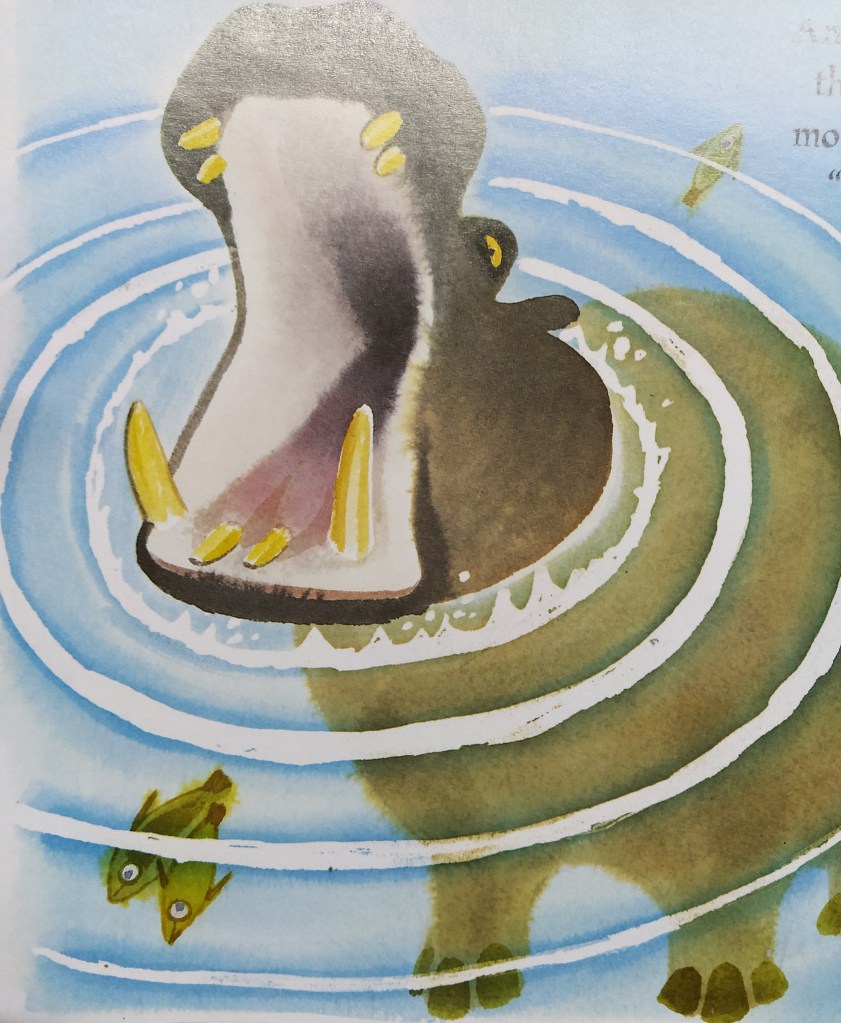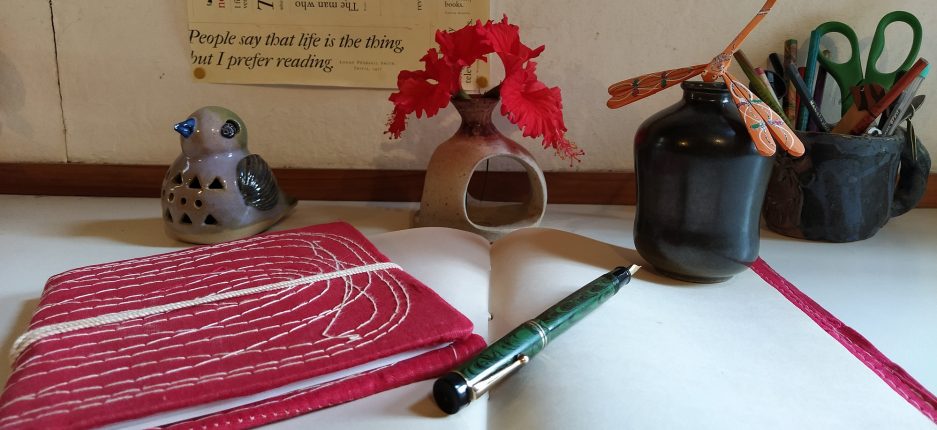My grandfather, Gijubhai Badheka went to East Africa as a young man in 1907. Recently I was reading some memoirs of his time in what was then truly an unknown continent. One of the pieces described how he and his friends were chased by a hippo. This led me back to my own stay in Kenya, almost 75 years later, and to remember some other hippo stories.
While in Kenya, we often went camping in the national Parks. In our early days there, whenever we were setting off on safari we were told “Beware of the kiboko!” In a big game park, one would assume that it was the simba or lion that we needed to keep a safe distance from. As it turned out, we were being warned about the hippopotamus!
Till then, the only time that I had seen a hippo was in a circus. I remembered, from years ago, a big ungainly creature lumbering into the ring and being made to open its mouth, revealing huge ugly teeth. Into this wide cavern, its keeper placed a cabbage, whereupon the hippo closed its mouth, turned around and lumbered out of the ring. End of hippo act!
To be told, that in the wild, the vegetarian hippo, if disturbed, could be more dangerous than the big carnivores was somewhat hard to believe. More interesting was to also discover many fascinating facts about this animal.
The word hippopotamus comes from Ancient Greek, and loosely translates as “river horse.” Indeed this creature spends most of its time in water in rivers or lakes, keeping its massive body cool under the hot African sun. Although a hippo can hold its breath for up to five minutes, it must also come up for air. Its eyes and nostrils are located high on the head allowing it to see and breathe as soon as its head rises above the water. Just as breathing and blinking are automatic actions for us humans, a hippo subconsciously, and regularly, surfaces for taking a breath even while staying fast asleep.
Although these mammals spend a considerable amount of time underwater, and even give birth underwater, hippos cannot really swim! Instead they simply walk or run along the riverbed, pushing up periodically through the water for air.
One of the main reasons hippos spend so much time submerged underwater is to prevent their skin from drying out and cracking under the hot sun. They also love wallow in the mud which provides a protective and cooling layer over their sensitive skin. They even secrete their own sun screen lotion, moisturizer and germicide—an acidic substance that turns red when exposed to the sun. This has given rise to the myth that hippos sweat blood.
Hippos are huge—among the largest land animals on the planet after the African elephant and rhino! Male hippos can weigh up to 3,200 kg and a baby hippo can weigh up to 50 kg at birth. And like the elephant and rhino hippos are vegetarian. Hippos feed mainly on grass; but considering their enormous size, a hippo’s food intake is relatively low—between 30 and 50 kg per night. For this, while they spend the day in water, they come on to land at sunset, walking up to 10 km a night as they graze on grass.
Hippos and their habits play an important role in the ecosystem. On land, their grazing keeps the short grasses trimmed, and the swath cut by their huge bodies creates a trail that other animals also use. As they walk under water they stir up the mud, and as they defecate in water their dung provides microorganisms that are an important component of the aquatic food chain.
Hippos are celebrated and revered in Africa, and feature prominently in African folklore. There are several folktales about why the hippo has its distinctive features. One of these is a delightful tale from South Africa that sums up all the characteristics of the Kiboko.
Long long ago in the dry and dusty plain Kiboko sat on the bank of the river under the blazing sun. Kiboko had never been in water before. Like the rest of his kind, he lived on land and ate grass. This was what the great mountain spirit Ngai had ordained. As he looked at the fish swimming in the cool water, he thought how wonderful it would be to like them. He thought, “Why don’t I ask the great spirit Ngai?” So Kiboko walked and waddled and lumbered and plodded all the way to meet the Great Spirit. At last he reached, and begged for a chance to live in rivers and streams.

The great Ngai was angry. “The river is no place for a huge fellow like you. You would eat all my little fishes!”
“No, no” promised Kiboko. I will continue to eat grass. And I will open my mouth wide whenever you ask, to show you that I have not eaten even a little fish. I will even stir up the water with my tail so that you can see that I have not hidden any fish bones.”
“Well” conceded Ngai, “you may live in the water, but…you must come out of the water every night so that you do not eat any fish at night, and you will eat only grass that grows on land”.
Kiboko agreed to all the conditions. He was so happy! He ran all the way back and jumped straight into the river with a mighty splash! But he forgot that he was not a fish; he could not swim! He sank straight to the bottom. He never learned to swim, but he learned to hold his breath, and to run along the bottom. This he does to this day. He also wags his little tail and stirs up the silt, to show that he has not hidden any fish bones. And every now and then he surfaces and opens his mouth wide as if to say “Look Ngai, no fishes!”
The seemingly benign hippo can be surprisingly aggressive, when its ‘safety zone’ is threatened. This may happen when humans visit rivers to collect water, wash clothes or bathe. With growing human encroachment into wilderness areas, this leads to human-hippo conflict which could lead to fatalities. But today hippos are under threat from Increasing human encroachment that is leading to their habitat loss; they are also hunted for their skin and teeth. The hippopotamus once ranged from the Nile Delta to the Cape, but now is mostly confined to protected areas. Currently, the species is listed as “Vulnerable” by the IUCN. As with all other species, the hippo too struggles for survival amidst the humans.
While Ogden Nash once captured the humour in the mutual perceptions, sadly today we look like the biggest threat to the hippo.
Behold the hippopotamus!
We laugh at how he looks to us.
And yet in moments dank and grim
I wonder how we look to him.
–Mamata

Very interesting story!! Enjoyed every bit of it!! Thanks for sharing!
LikeLiked by 1 person